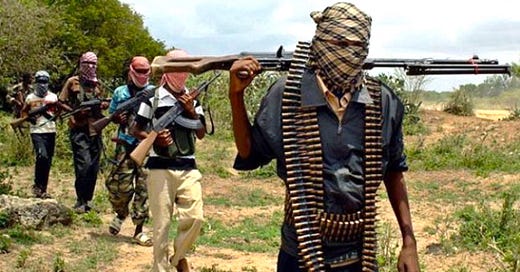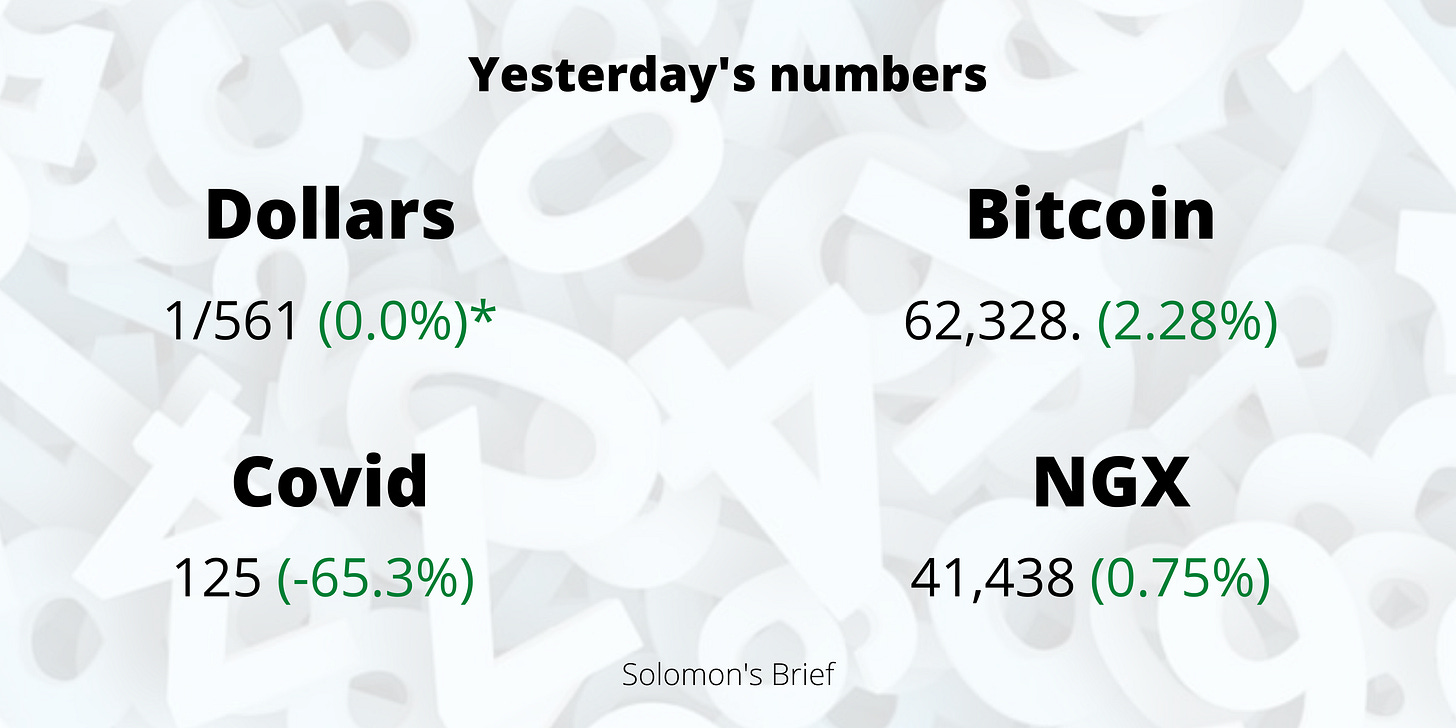Did the Wall Street Journal lie about Nigeria paying bandits?
+ genetically modified crops under fire
Good morning,
Welcome to the Monday briefing. This newsletter keeps you updated with the latest news from Nigeria. Don’t forget to subscribe to receive it in your email before 7 am (WAT) every weekday.
A ‘Cash for seized weapons’ operation?
The Wall Street Journal on Sunday reported that the Nigerian military paid bandits to forestall an attack on President Muhammadu Buhari. Apparently, the bandits had seized an anti-aircraft gun during a duel with the military. And, now armed with the capacity to shoot down the President’s plane, the air force had to act immediately by arranging a ransom of N20 million “in crisp Nigerian banknotes” delivered by a young intelligence officer to the forests of Jibia, Katsina by the border with the Niger Republic.
Intriguing story.
Of course, as usual, the air force has tagged the Wall Street Journal’s reporting as “fake news” asking why it would pay the same bandits it was decimating with airstrikes.
Expect more denunciations in the coming days from other military spokespersons and maybe even the Presidency. The federal government’s official stance is that it will not negotiate with bandits or pay ransoms.
But, is it true?
My feeling is that there is more to the story. The Wall Street Journal’s reporting relies on the account of the young intelligence officer involved in the cash handover and another senior official who corroborated the narrative. The young intelligence officer refused to be quoted but his superiors must know he spoke to journalists, no? And to what end?
The Wall Street Journal reporters behind the reporting, Joe Parkinson and Drew Hinshaw have covered Nigeria for more than a decade and recently published a highly-acclaimed book about the 2014 Chibok kidnapping and efforts to bring back the girls. So, with their wealth of sources and experience, it is surprising that they didn’t include an official response from the Nigerian government in the story.
Besides, the bulk of the story is a summarised commentary on banditry in Nigeria (a topic already heavily covered by the Nigerian media) packaged for an American audience. The focus is not the young intelligence officer’s account, which was employed to give the story a narrative flavour.
The story, however, isn’t an “utterly illogical allegation” as the air force has claimed. There are a plethora of reports about bandits seizing military equipment, and clandestine intelligence operations, all over the world, don’t always follow the official rulebook.
So, my conclusion is that it isn’t fake news, but it is incomplete.
P.S: For a much better understanding of the security situation, please read Nigerian publications such as HumAngle and Premium Times.
What else is happening?
Pandora papers: It isn’t official yet, but there are indications that the Economic and Financial Crimes Commission (EFCC) is beginning to look into individuals mentioned in the Pandora Papers exposés. According to Premium Times, the publication behind the Nigerian version of the exposés, former Anambra state Governor, Peter Obi, has been invited to the EFCC headquarters in Abuja on October 27. The Managing Director of the Nigerian Ports Authority, Mohammed Bello-Koko, and a serving senator, Stella Oduah, are also said to have been pencilled down for questioning.
#EndSARS: As the debate over whether there was a massacre at the Lekki Toll Gate on October 20, 2021 - and who was responsible - continues, Adejumo Kabir has documented the experiences of those shot at during the protests. Meanwhile, the Nigerian government has asked for protests on October 20 to be shelved.
Travel warning: The United Kingdom has advised its citizens not to travel to 12 Nigerian states due to insecurity. The states are Borno, Yobe, Adamawa, Gombe, Kaduna, Katsina, Zamfara and the riverine areas of Delta, Bayelsa, Rivers, Akwa Ibom and Cross River. They also warned against travelling to the following states, except for essential reasons: Bauchi, Kano, Jigawa, Sokoto, Kogi, within 20km of the border with Niger in Kebbi, Abia, and the non-riverine areas of Delta, Bayelsa, and Rivers.
Nnamdi Kanu: The separatist’s trial is expected to resume on Thursday and all eyes will be on the Department of State Services who are expected to produce him in court. Meanwhile, Kanu’s proscribed IPOB has said there will be no more sit-at-home protests in the South-East until the trial.
TELA maize: Civil society groups are pushing back against the approval of the genetically modified maize variety in Nigeria. According to them, there is no evidence that the variety helps with “drought tolerance and insect resistance” as marketed. And its introduction into the Nigerian market, they say, carries safety risks.
And that’s it for today. Join me again tomorrow.





